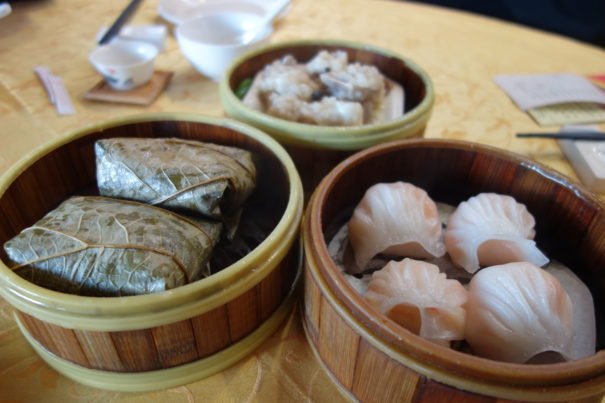
The Game‑Changing World of Food Translation Apps

The Game‑Changing World of Food Translation Apps
Dim sum in Guangzhou
It’s mid-morning, and a seemingly endless stream of diners are entering our
yum cha restaurant when a waiter approaches our table and starts speaking in Cantonese. He points at the teapot and we nod our heads in response, assuming he’s asking if we’d like tea. This doesn’t answer his question. Suddenly, he begins talking into his phone. A voice replies in a crisp, if robotic, American accent. “Which tea would you like?”
I pull out my phone, open a translation app and hold it over the menu.
Onscreen, the Chinese characters morph into English words punctuated by gibberish. It’s confusing, but enough to get the gist. We point at jasmine.
This restaurant is part of a growing shift among yum cha restaurants to à la carte ordering, which, to someone who can’t speak the language, is much less accessible than ordering from trolleys. But this is Guangzhou, where using the latest smartphone while dining is borderline compulsory.
Throw in the patience of local waitstaff—and their willingness to share their cuisine with dopey foreigners—and ordering is no longer a struggle.
We get the usuals (pork buns, prawn dumplings, sticky rice and more), but one dish dominates the menu and seems to be on every table. Hovering my phone over the back page, the translation app spells out something completely unexpected: intestines.
Little did my app know, “intestines” was a metaphor in this case. Hóng mǐ cháng (红米肠) are small rolls of minced shrimp wrapped in red rice paper. They resemble sections of intestine when served. The pink-red rolls are soft on the outside and chewy on the inside, with a layer of fried crispiness in between. Cooked in peanut oil, they’re a greasy digression from the steamed parcels we usually had for breakfast.
Suddenly a waiter brings over another bamboo steamer, but this time she fusses over our table’s receipt. She looks at the paper, then up at our meals, then back at the paper, and then back at our meals. Something is amiss, but all she can do is point vaguely.
Out come the phones again. Before she can think of how to phrase her translation, I realize what she wants to know. One of our meals hasn’t been stamped, and she’s worried someone has forgotten to bring it. Luckily I had taken a photo of our table earlier without giving it a second thought. This showed that we had indeed received the phantom meal. Crisis averted, and smiles all around.
As we’re leaving, the first waiter pulls me aside. His phone’s robotic American voice asks me what app I was using to translate the Chinese menu through my phone’s camera. I was also curious about the app he used to translate his voice into English, so we decided to exchange apps. You could say we granted him sight, and he granted us speech.